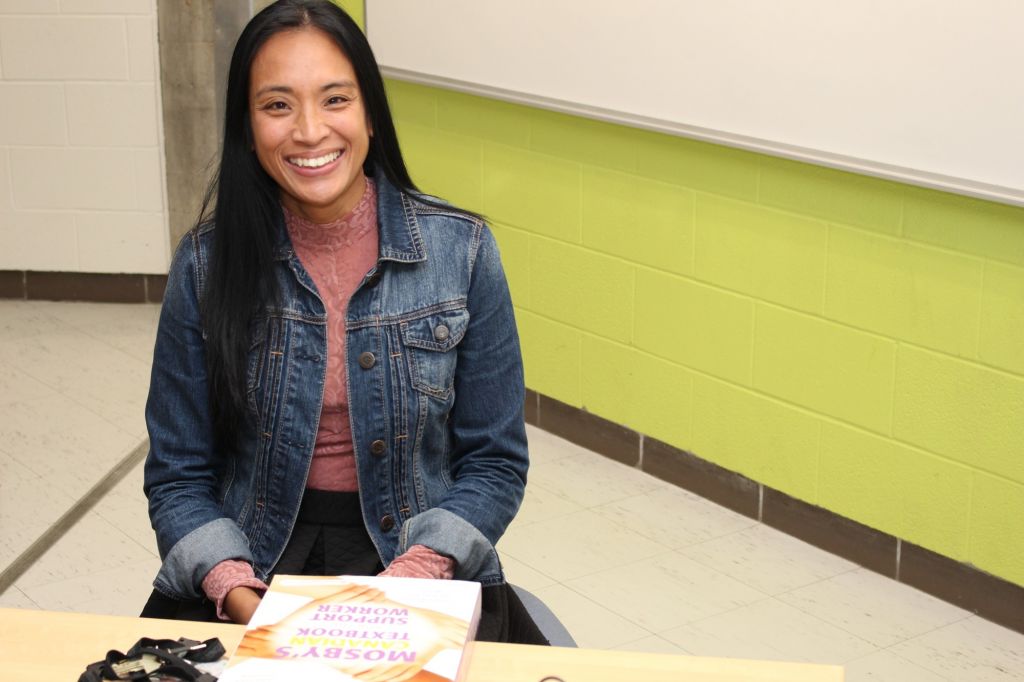There’s a new program on campus and its first set of students just graduated.
The first wave of personal support worker (PSW) students who were in the newly integrated program just graduated in January 2018. The eight-month program offers the original program’s in-class learning alongside additional hands-on experience at the Perley and Rideau Veterans’ Health Centre.
The students start the hands-on work at the Perley and Rideau within the first month.
PSW co-ordinator and Algonquin grad, Jennifer Munoz, was approached by her managers to help with a new project at the Perley and Rideau. The students get to practice resident care in a newly renovated classroom at the centre with four beds and four mannequins to practice their skills.
“The students are able to learn their role as a PSW. They learn how to provide safe and competent care to their resident,” Munoz said.
Each student is paired up with a staff PSW at the Perley and Rideau. The staff show the students the skills on how to care for residents.
The staff went through mentorship training with Munoz to help the students adapt to the work life of a PSW.
“They learn how to work as a contributing member of the health care team,” Munoz added.
Valerie Little, a graduate of the PSW program with the Perley and Rideau, knows the hands-on experience is just as important as learning from a textbook.
“You learn it from a book, then go to the classroom and execute it perfectly,” Little said.
Little, who was in the sales industry for 30 years, picked this program after gaining skill and experience from looking after her ailing mother for years. This program was all she needed to gain knowledge in the medical field.
Munoz explained there is a need for personal support workers in our community because of the large aging population. Several home care agencies and long-term care homes have contacted Munoz asking for more PSW graduates.
Munoz is very passionate about this new program.
“Personal support workers don’t only provide direct care, for example daily living, but they are also advocates for residents. They can pick up on emotional needs and physical needs and are a companion to the residents.”


